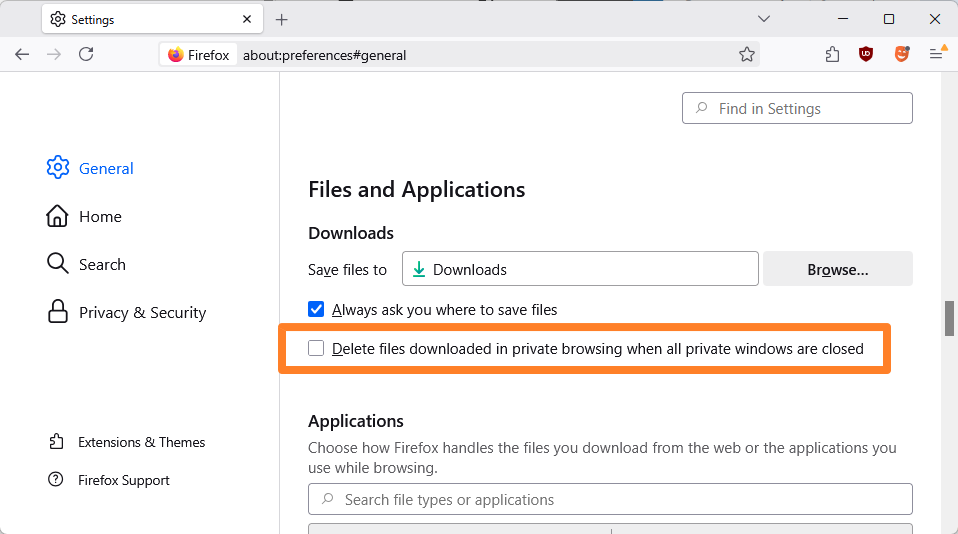The private browsing mode of web browsers is quite useful, albeit not for the task that developers like Google or Mozilla advertise it for. While the companies make it sound like a good way to improve privacy, it is just that in one very specific use case: if someone else has access to the device, your user account and browser.
If that is not the case, it won’t really help you much, as most of the tracking happens online.
Still, it is great for accessing sites without having to worry about deleting it manually from history, accessing sites without being signed in to an account, or avoiding some tracking, as the private browsing data is separate from the regular browsing data.
Mozilla added a new option recently that deals with downloaded files. When you download files in private browsing modes, they land in the same download folder as regular downloads.
While that is wanted at times, some users might prefer the traces of downloads being deleted automatically. It is that option that is now available in the Firefox browser.

Here is how you configure it:
- Load about:preferences#general in the browser’s address bar.
- Scroll down to the Files and Applications section on the page.
- Check “Delete files downloaded in private browsing when all private windows are closed”.
This deletes downloaded files automatically once you close the last private browsing window.
Is it a useful feature? I do not know. It may help users who share accounts, as it removes any trace of a download from the system. Whether that makes sense depends on the use case. I’d say, it can also lead to confusion, as files get deleted automatically when the feature is enabled. That is probably the main reason why Mozilla decided to make it opt-in.

Deleting a file does not “remove any trace”. In fact, it does not remove the file at all, it only tells the system that that space is available to write new data.
I’m sure you know this.